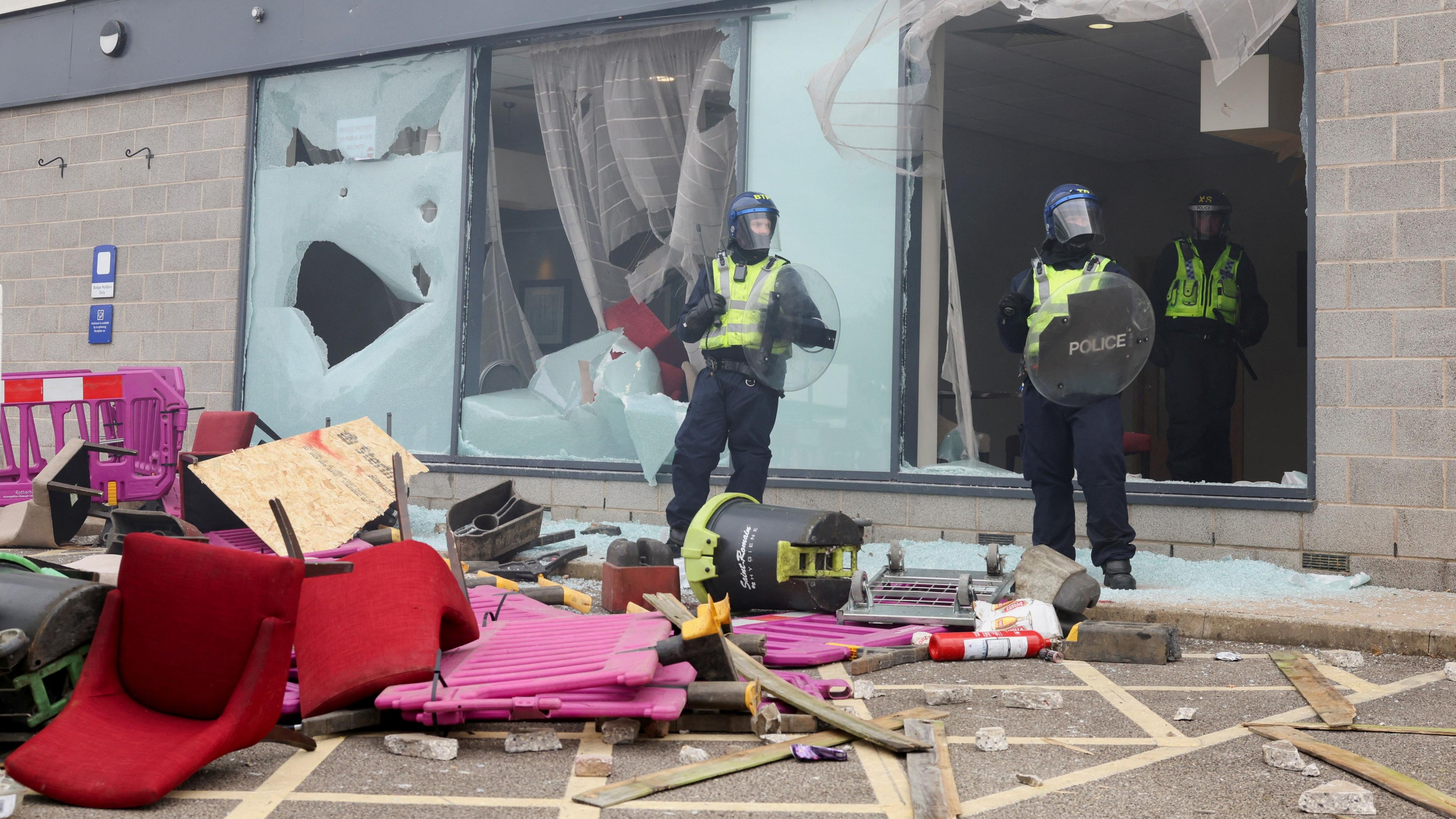Who are the rioters and what jail sentences have they received?
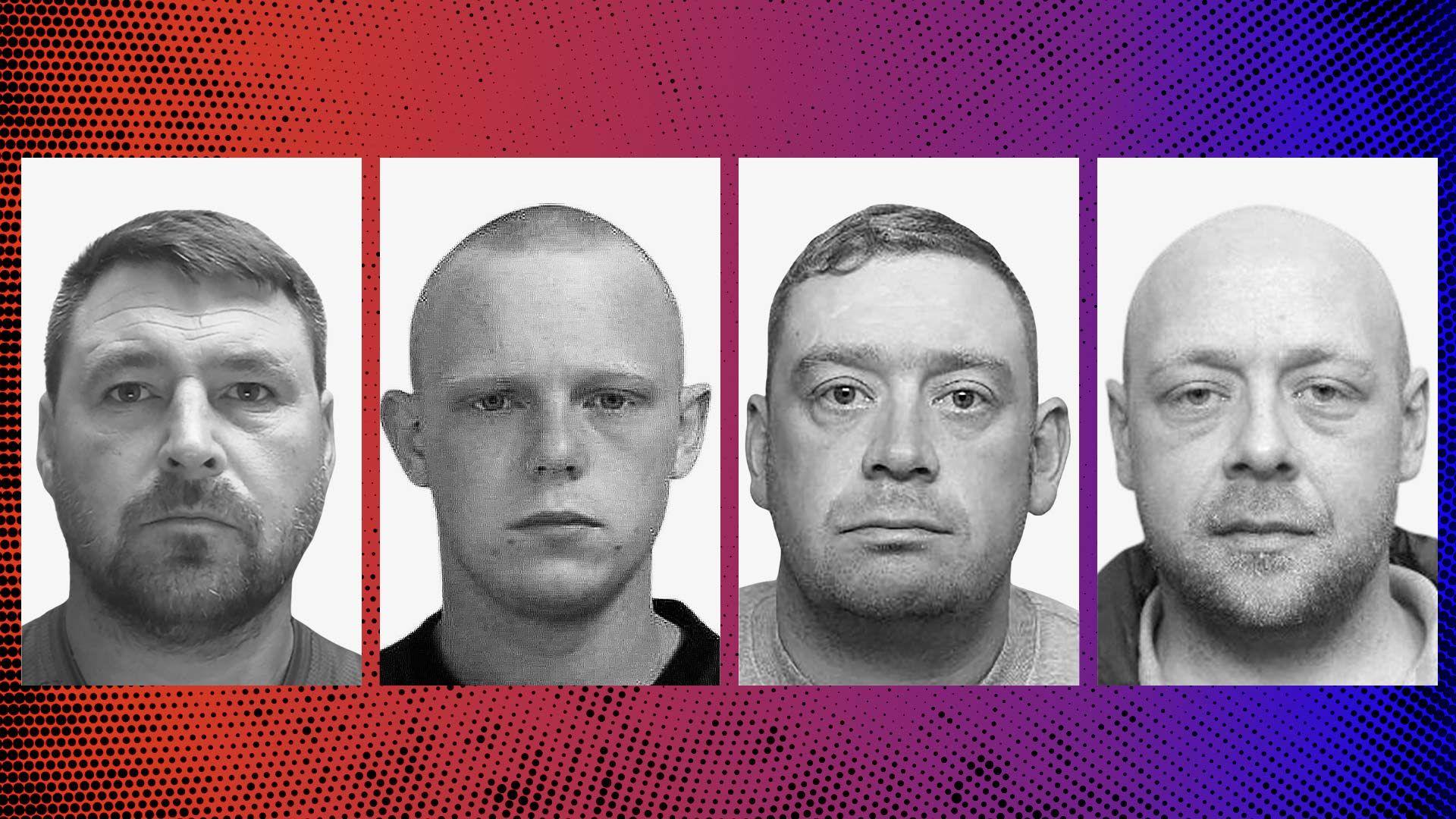
- Published
Dozens of people are appearing in court following the worst violent disorder that the UK has seen in more than a decade.
Those sentenced include two brothers who were at the forefront of rioting outside a hotel housing more than 200 asylum seekers in Rotherham.
The violence, in towns and cities across England and in Northern Ireland, was fuelled by misinformation online, the far-right and anti-immigration sentiment.
What have people been charged with?
Using information from the police and courts, BBC News has collected data on 470 people in England and Wales charged in connection with the violent disorder. Some face multiple charges.
Of the 652 charges analysed, violent disorder was the most common, with 310 counts. There were 51 counts of harassment, alarm or distress and 42 of assaulting an emergency worker.
Kieran Usher, 32, from Sunderland, became the first adult in England and Wales to be charged with riot, external, the most serious public order offence. It carries a maximum sentence of 10 years.
However, the first person to be charged with riot was a boy, aged 15, who can't legally be named because of his age.
At least 49 people under the age of 18 have been charged in connection with the disorder. However, the average age of suspects is 32. The youngest suspect charged was aged 11, while the oldest was 81.
Of the 470 people charged, at least 431 are male. In cases of under-18s, police have not always provided full details.
The charges relate to incidents in 39 cities or towns across England. Online offences were not assigned a location.
Northern Ireland has separate disorder laws from England and Wales. The BBC has analysed charges for 18 people following incidents in Belfast. The most common charge was riot.
What sentences have people received?
At least 200 people have already been sentenced, with most sent to jail. Some individuals received multiple sentences.
The average prison sentence length was two years.
However, some cases have involved community orders, fines or younger people being sent to young-offender institutions.
Related topics
- Published9 August 2024
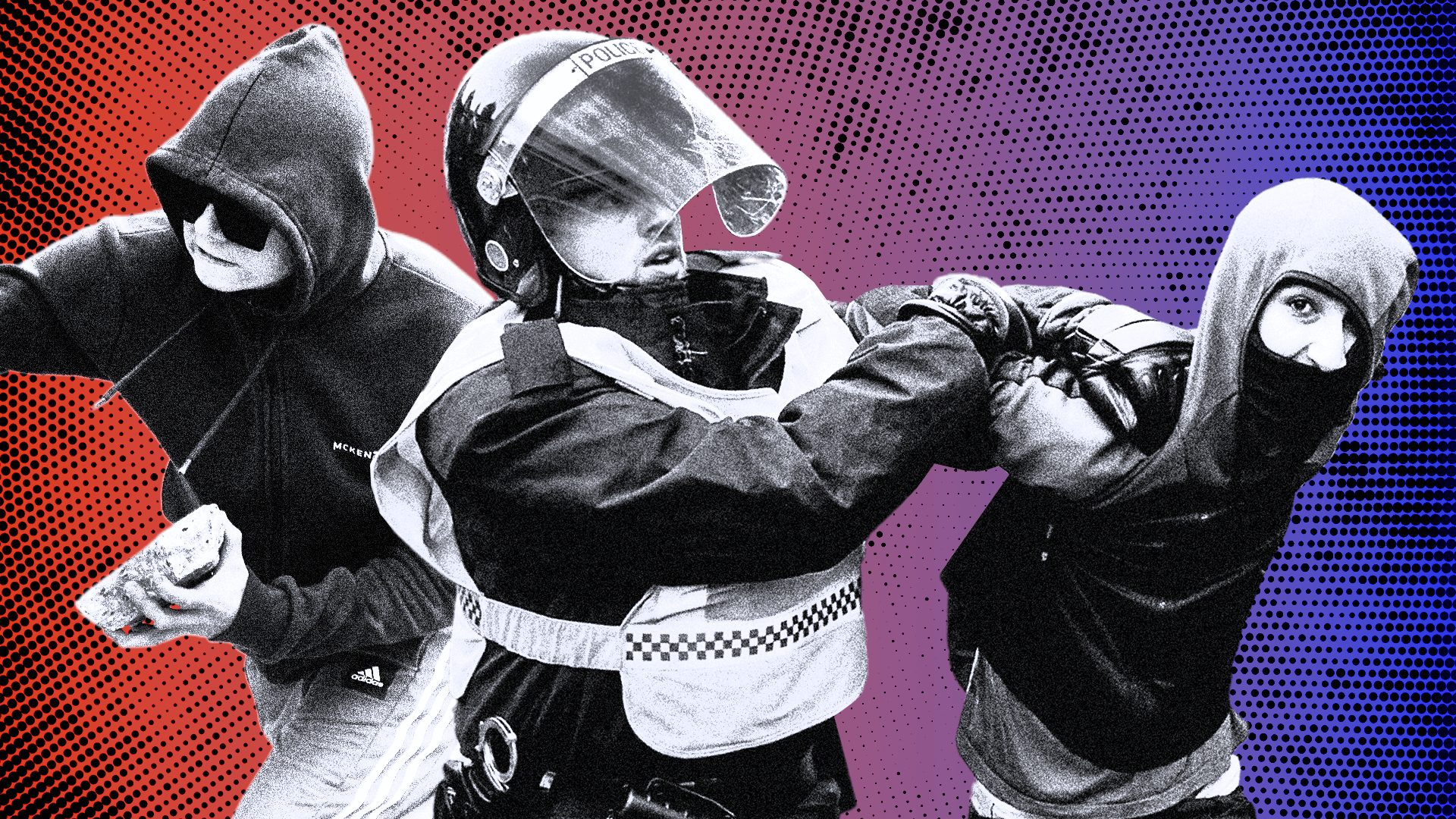
- Published8 August 2024
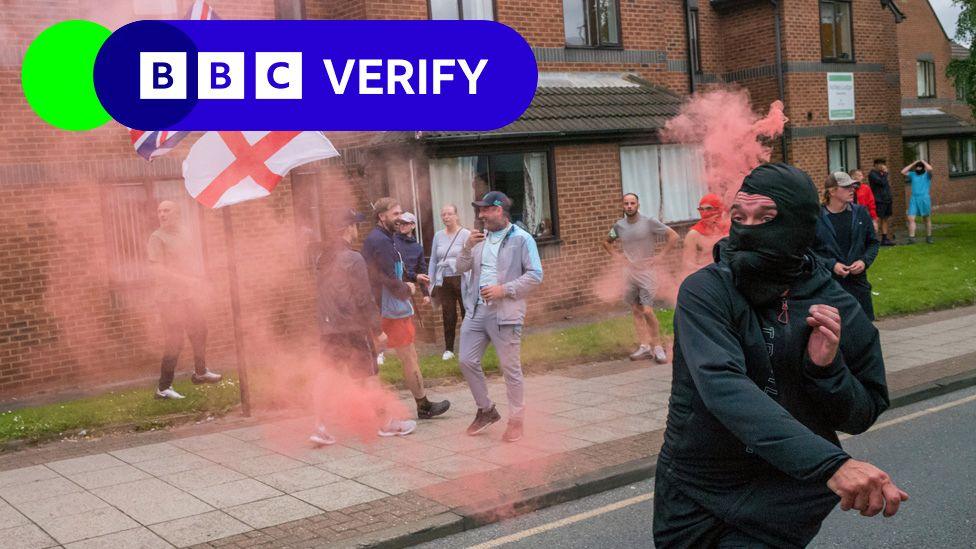
- Published6 August 2024
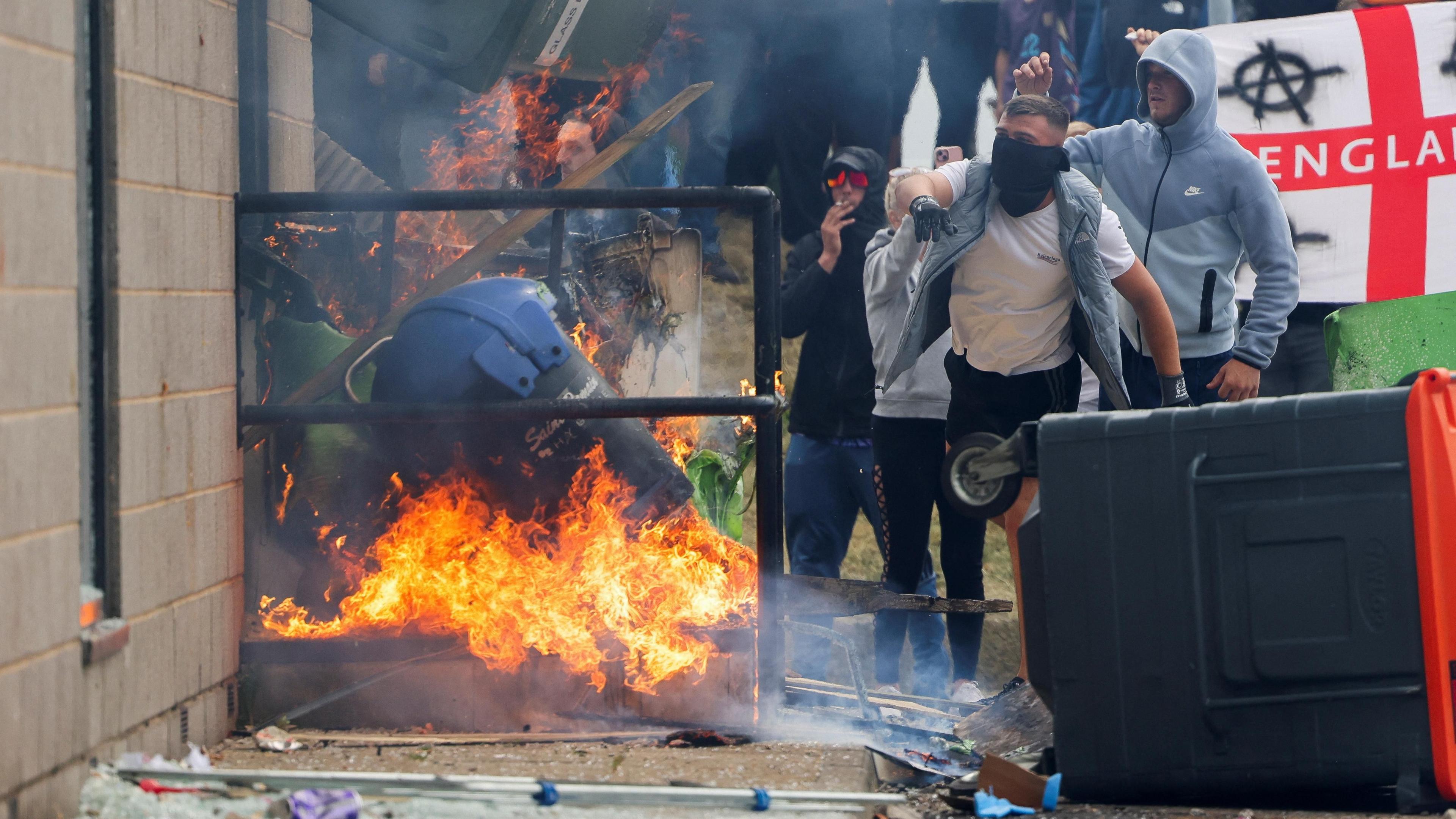
- Published6 August 2024
